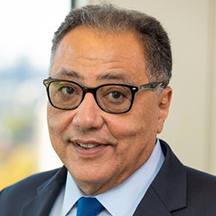Arab regional cooperation in a fragmenting world
As globalisation stalls, regionalisation has emerged as an alternative. This column argues that Arab countries need to face the new realities and move decisively towards greater mutual cooperation. A regional integration agenda that also supports domestic reforms could be an important source of growth, jobs and stability.
A moonshot for MENA: laying the groundwork for a modern digital economy
A new economic reality is needed in the Middle East and North Africa (MENA). This column proposes a ‘moonshot’, which, like the US effort to land a man on the moon in the 1960s, can unite people behind a common goal and transform the ways in which governments, companies, international financial institutions and civil societies conduct business. It would transform MENA economies and help to ensure that millions of the region’s young people can find the good jobs they deserve.


